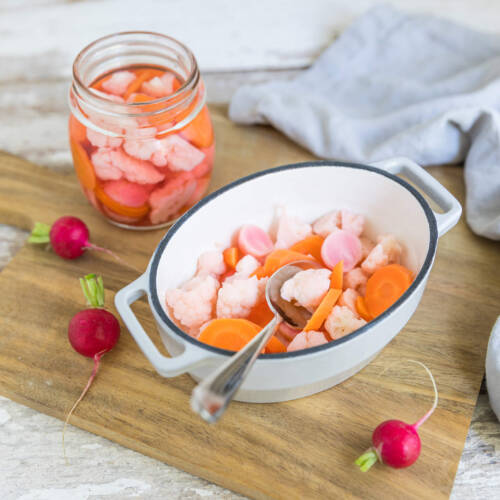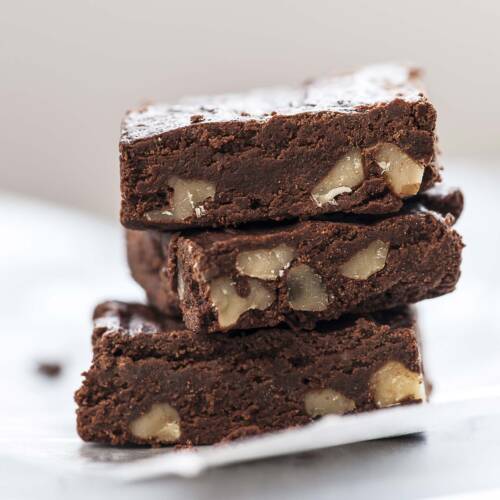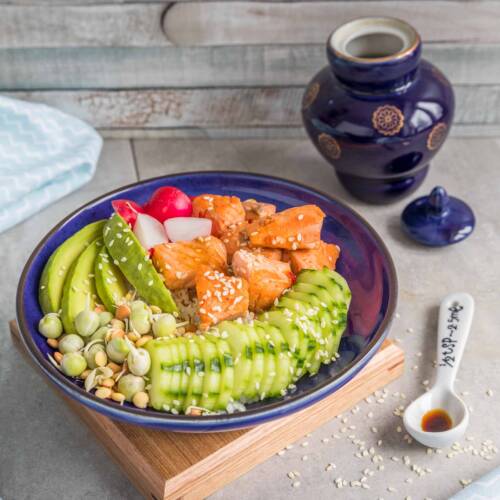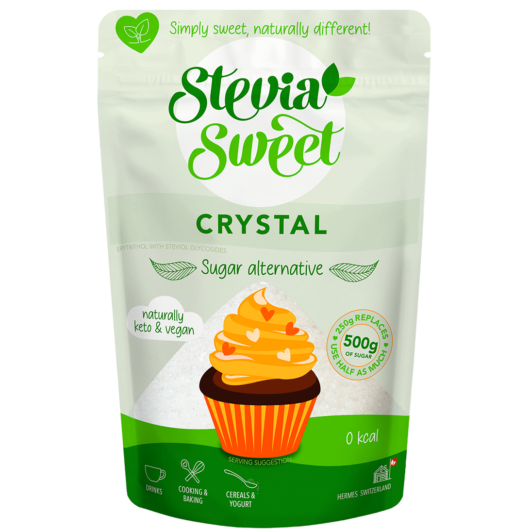The hidden poison in our food
The World Health Organization recommends a maximum intake of 25 g of sugar per day. However, many of us far exceed this amount, often without suspecting it. A wide variety of foods contain sugar and it is not always easy to identify in the list of ingredients. Would you like to know where you can find hidden sugar? We will show you the pitfalls and suitable alternatives that help you avoid a high sugar intake.
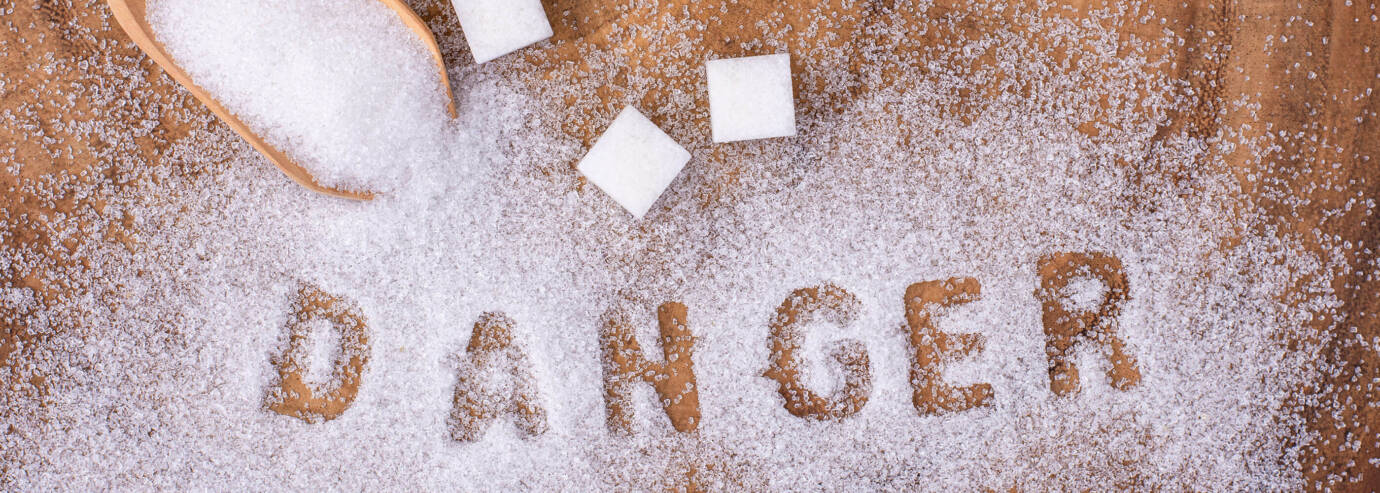
How does sugar affect us and when is it harmful?
We asked nutritionist Stefanie Bürge about her opinion on the sweet food with a bad reputation:
Our organs, muscles and cells depend on sugar as fuel. But sugar doesn’t necessarily mean refined sugar: our bodies can easily draw the energy it needs from starchy products, fruits and some vegetables. Fat and protein are also converted to energy, although this process takes longer. We do not need sugar to survive. However, sugar does threaten our health when we consume it indiscriminately, unconsciously and in large quantities.
Pure sugar, such as the sugar in soft drinks, snacks or sorbet, causes blood sugar levels to rise rapidly. Insulin is then released to lower these levels. Insulin promotes the absorption of sugar into our cells, which is vital for life. Excess sugar is stored in the body. Large amounts of sugar mean large amounts of insulin. A rapid rise in blood sugar is followed by a rapid decrease, which means we then become hungry again.
I frequently talk to people who consume sugar-sweetened beverages between meals, including squash and fruit juices. This behaviour also causes blood sugar levels to rise and insulin to be released. The body constantly absorbs energy, but never depletes (fat) stores. In the long run, such ups and downs in blood sugar levels can lead to excess weight and make us ill.
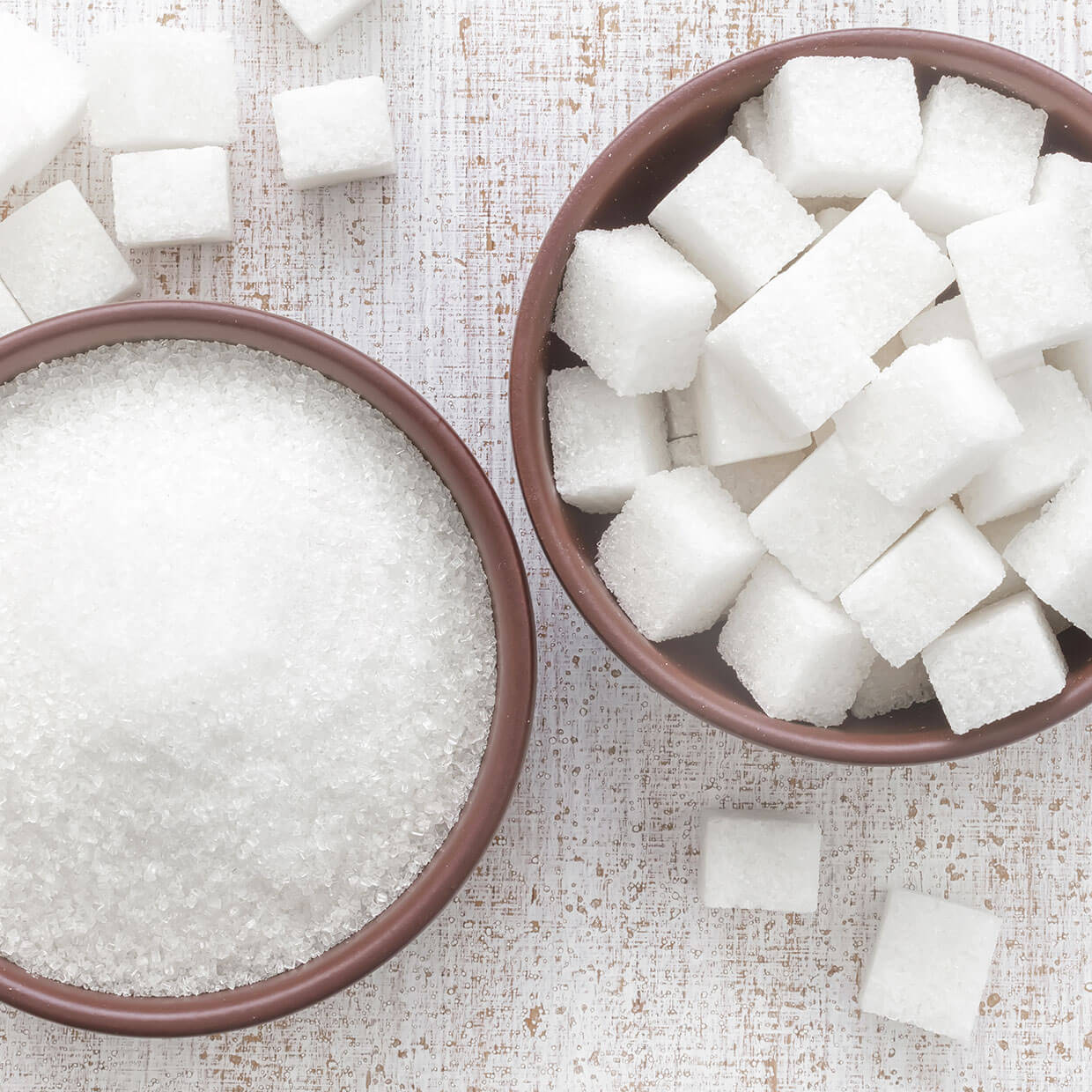
What does “hidden sugar” mean?
Ingredient lists are often printed on product packaging in minute letters, with the ingredients listed in descending order according to the amounts the product contains. If sugar is listed as the first or second ingredient, the product largely consists of what can also be called “white poison”.
But the list does not always reveal how much sugar a food truly contains. Manufacturers like to use pseudonyms. Whether syrup, dextrose or whey powder: when different types of sweeteners are used in a food, the individual amount is often lower, pushing the ingredients further down the list. Hidden sugars mean that consumers do not always realise just how high their sugar intake is.
Which foods contain hidden sugar?
Sugar sometimes lurks where we least expect it. And even with well-known “fattening foods” we are quite astonished when we hear how many cubes of sugar a product actually contains. Ready for some sugary-sweet revelations?
Ketchup
Ketchup is the perhaps most popular accompaniment to chips. However, if you think that its red colour would imply that ketchup largely consists of tomatoes, you would be very much mistaken. A 500 ml bottle contains approximately 130 g of sugar, which corresponds to 43 sugar cubes!
Fruit yoghurt
An industrially produced fruit yoghurt would initially appear to be a healthy snack or a light breakfast. But this is not true: a 150 g cup of yoghurt contains up to six cubes of sugar (that’s 18 g)!
Our delicious tip against hidden sugar: make your own fruit yoghurt – without sugar and perhaps with the natural sweetness of SteviaSweet.
Muesli bars
Every now and then, a muesli bar can help if we feel a bit hungry in the afternoon. At first glance, this would seem to be a healthy option. Right? However, if we look at the amount of sugar they contain, unfortunately not – muesli bars are proper sugar bombs! On average, one bar contains about three sugar cubes!
If you want to skip the sugar but not the delicious snack, we have the perfect product for you! Granola bar without added sugar with berries.
Pickled vegetables
During winter, we like to indulge in red cabbage from a jar, while gherkins can take a summer barbecue to the next level – now who would expect a hidden sugar trap there? But be careful: a larger 700 g jar can easily contain 25 sugar cubes (77 g). Gherkins (in a jar weighing about 670 g) have 12 g of sugar per jar, which corresponds to four sugar cubes.
We therefore recommend controlled home cooking: try our delicious recipes for preserved vegetables and home-made pickles.
Tomato sauce
Do you love pasta with tomato sauce? A 400 g jar contains about 25 g of sugar – that’s eight sugar cubes.
But don’t worry. Of course we have a sugar-free recipe for this delicious dish: enjoy our pasta with tomato sauce.
Gummy bears
Who doesn’t like these colourful treats? But did you know that they are half sugar? 100 g of gummy bears contain 50 g sugar or 27 sugar cubes.
The SteviaSweet team couldn’t live without gummy bears, which is why we came up with our own version, using stevia and maltitol in place of sugar!
Nutella
Okay, admittedly we would expect a chocolate spread to contain a lot of sugar. But it is still shocking to see 83 cubes – or 250 g – of sugar in a 450 g jar.
Here as well we do have a alternative for you, the Hazelnut nougat cream without added sugar.
Chocolate
“Life without chocolate is life lacking something important.” – Frederic Morton
We wholeheartedly agree with this. Nevertheless, we know that another ingredient besides cocoa often comes into play when we eat chocolate: sugar. Unless we choose sugar-free products! Have you already seen the SteviaSweet chocolate product range?
Apple juice
Half a litre of apple juice contains 50 g of fructose, but an easy trick will help you cut the sugar amount in half: simply mix the apple juice with water. After all, a spritzer tastes just as good as pure juice!
Fruit nectar
Fruit nectar only contains very little juice, but lots of water and sugar (both fructose and added sugar) – approximately 22 g per glass or seven sugar cubes. If you still want to enjoy something exotic from a bottle, why not add some more water to the nectar? The smooth flavour remains, while the amount of sugar is reduced.
Soft drinks
Cola, Fanta, Sprite or industrially produced lemonade all have one thing in common. You can already guess … it’s sugar! A 500 ml bottle can contain between eight and fourteen cubes of sugar.
How about a sugar-free version of iced tea? Our recipe tells you how to make a delicious thirst-quencher.
Energy drinks
Red Bull may give you wings, at least for a short time, thanks to the seven sugar cubes in a 250 ml can. Our sugar-free suggestion provides more sustainable energy.
Cornflakes
How about cornflakes with sugar for breakfast? Isn’t it great how they swirl around in the milk and melt on your tongue? But sadly, we eat twelve sugar cubes along with 100 g of cornflakes.
We recommend the sugar-free version. Simply add some SteviaSweet if you need a bit more sweetness. SteviaSweet Crystal is perfectly suited here. (One teaspoon of SteviaSweet Crystal corresponds to two teaspoons of sugar.)
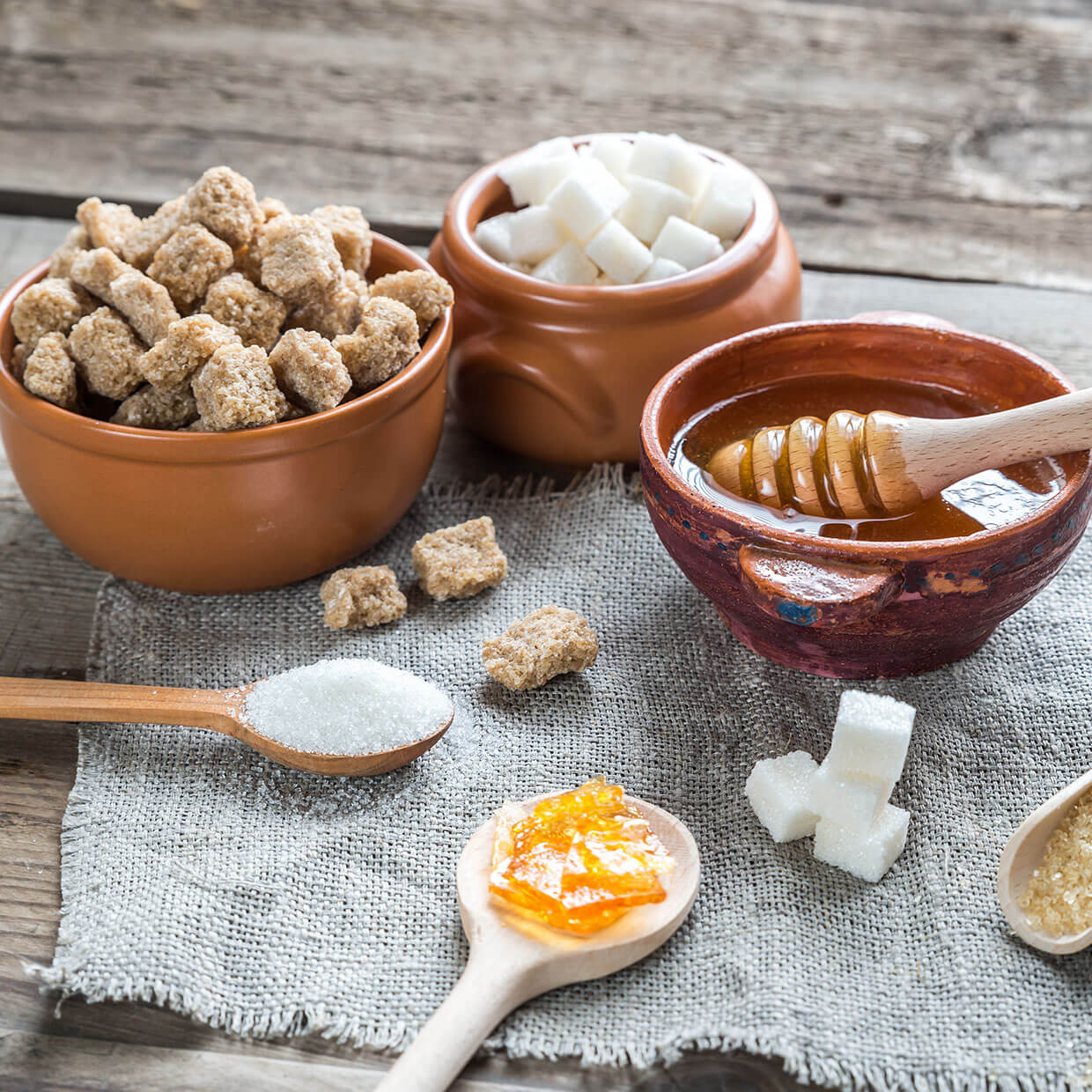
What alternatives are there to sugar?
So many foods, so much sugar. And of course it isn’t necessary. There are plenty of choices for sweetening, especially when baking and cooking. We have taken a close look at them and compared them for you.
This information is available in our article on sugar alternatives.
Is it possible to live without sugar?
It would be better for our bodies if we abstained from foods with a high sugar content. But living without sugar takes a considerable amount of willpower. As sugar is a cheap flavour carrier, the food industry puts it at the top of the ingredients list. Sugar hides behind terms such as malt, isomalt, barley malt and skimmed milk powder, which makes it tricky to avoid treacherous sugar traps.
Would you like more information on stevia or would you like to know more about maintaining a healthy everyday life? Don’t hesitate to contact us.
